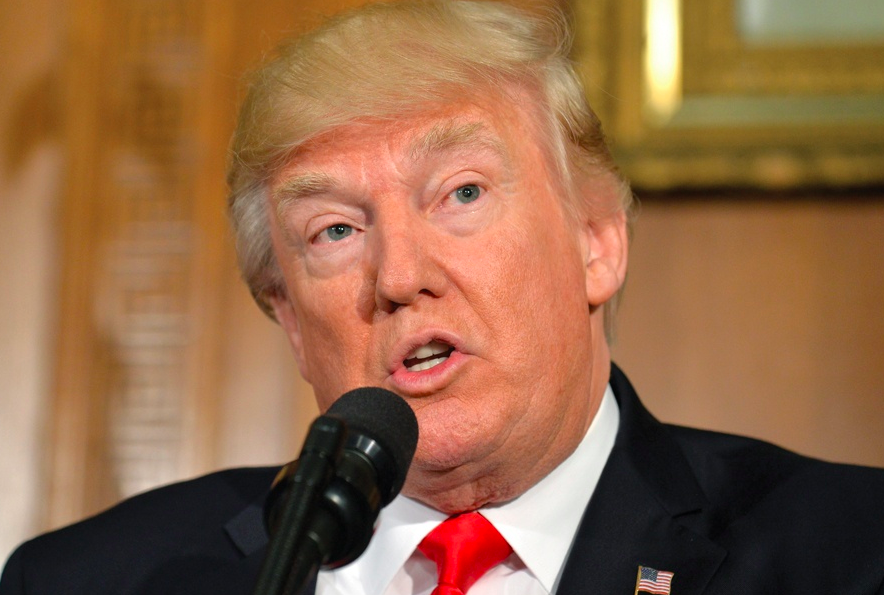Is President Donald J. Trump a hypocrite when it comes to retirement security? His actions certainly suggest so.
On Aug. 31, Mr. Trump signed an
executive order meant to strengthen retirement security by expanding access to workplace retirement savings plans for American workers. Specifically, relaxing rules around multiple employer plans would "make it easier for businesses to offer retirement plans." This announcement was celebrated with great fanfare from the retirement industry and members of Congress.
However, Mr. Trump took measures last year that seemingly flew in the face of the so-called retirement security he is now promoting.
Primarily, the president
signed a resolution killing a rule around state auto-IRA programs; he
signed a similar resolution on city auto-IRA programs earlier in 2017. His administration also
dissolved the Treasury Department's myRA program.
These initiatives, started during the administration of Barack H. Obama, were meant to do the very thing Mr. Trump is now championing: extend the possibility of workplace retirement savings to those without access to a 401(k) or other employer-sponsored retirement plan.
Expanding access to workplace retirement plans has been a major focus of retirement policy in recent years — a quarter of private-sector workers in the U.S. don't have access to such plans. These workers could, of course, save in accounts outside the workplace, but they are 15 times more likely to save for retirement if they have access to a payroll deduction savings plan at work, according to
AARP.
Open multiple employer plans, which Mr. Trump's executive order
promotes, would almost certainly lead to greater uptake of 401(k) plans by employers. Open MEPs would allow more small businesses to band together and form common 401(k) plans, theoretically driving down costs and administrative responsibility — the two things that
seem to most prevent employers from sponsoring a retirement plan.
However, if Mr. Trump — as well as Congress and retirement industry groups — are serious about closing the so-called "coverage gap," you'd think they'd be embracing auto-IRAs rather than railing against them. Experts believe state and city auto-IRAs — automatic-enrollment, payroll-deduction IRA programs — would close the coverage gap to a greater extent than open MEPs.
That's largely because auto-IRA legislation, which has been passed in five states, requires employers offer some sort of workplace savings plan, whether a private option like a 401(k) or the state-sponsored IRA option. Open MEPs are a voluntary arrangement.
"What would move the needle most from a coverage perspective is requiring businesses to offer a plan for their employees," said Andrew Remo, the director of legislative affairs at the American Retirement Association.
Further, the state auto-IRAs automatically enroll employees; open MEPs can, but wouldn't necessarily, have that feature. Administratively, auto-IRAs are perhaps easier than open MEPs since employers theoretically only have to facilitate payroll deduction for employees.
The Labor Department under President Obama offered guidelines, by way of regulation, to help states and cities develop auto-IRA programs. Mr. Trump signed away those rules. While that didn't nullify existing or future programs, it was meant to have a chilling effect. The governor of Illinois now
wants to make its state program voluntary, rather than mandatory, for employers of that state in the wake of Mr. Trump overturning the rule.
There are, of course, criticisms of auto-IRAs that naysayers point to. One big one: participants can't save as much in an IRA as they can in a 401(k). That's true. But is that really a big deal if people who wouldn't have otherwise been saving for retirement are now doing so? Plus, experts said that saving even small amounts of money automatically every pay cycle promotes a savings mindset.
"It sort of gets people into that habit," said John Scott, director of retirement savings at
The Pew Charitable Trusts. "They get a taste for it."
Plus, the proof is in the pudding. Experts
point to Oregon's program, the first to go live, which has more than 70% participation among eligible employees and has amassed more than $3 million since its pilot phase launched in July 2017.
Experts said myRA, a voluntary savings account, wasn't terribly successful — the program had
amassed about 20,000 accounts and $34 million nationally over a three-year period before it was shuttered. But it was always meant as a starter account to, again, promote a savings mindset.
All this is to say, Mr. Trump seems to be speaking out of both sides of his mouth. If he and the broader retirement industry want to beef up retirement security for workers, rather than just paying it lip service, they should stop taking conflicting actions and making contradictory proclamations about programs and legislation that support the mission.







